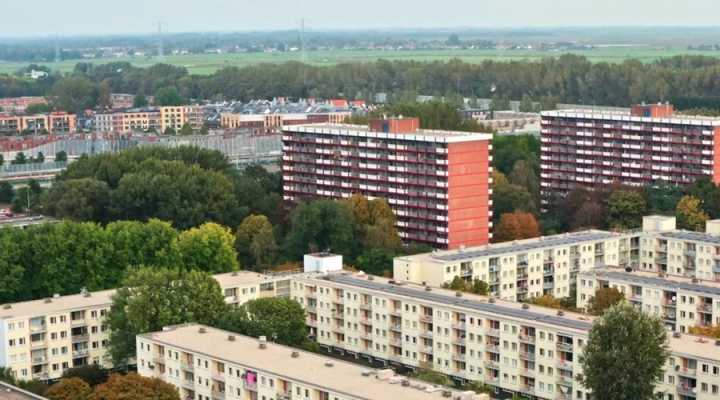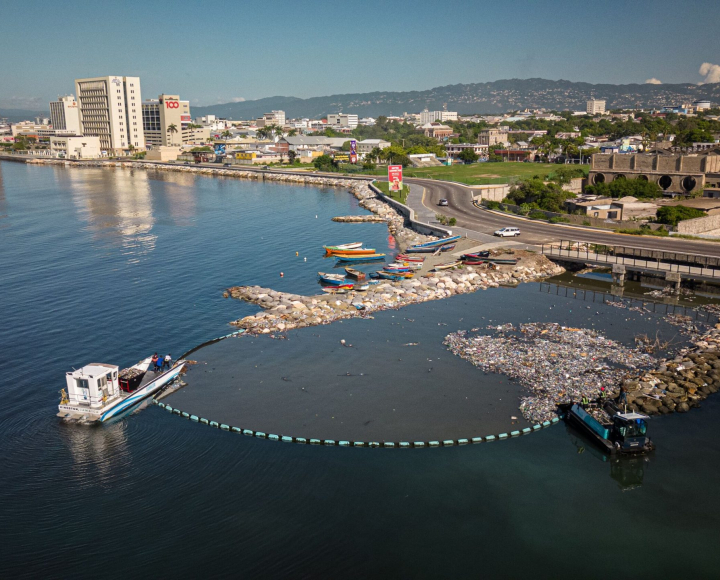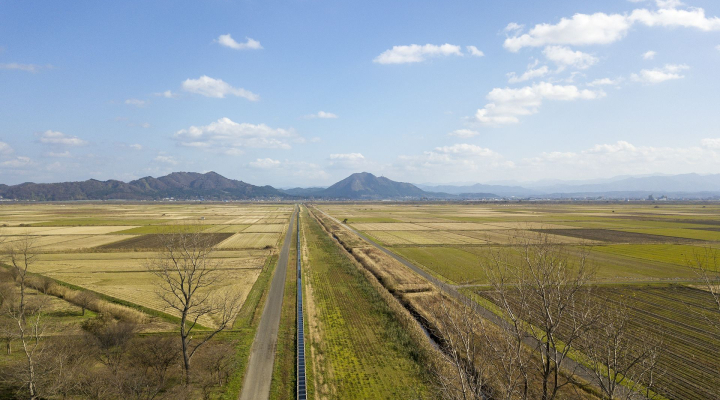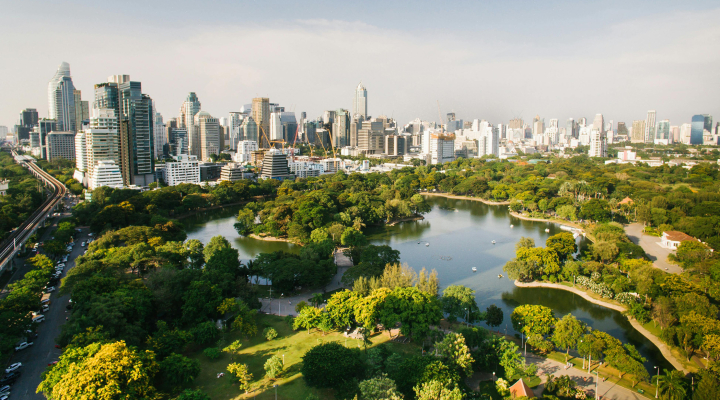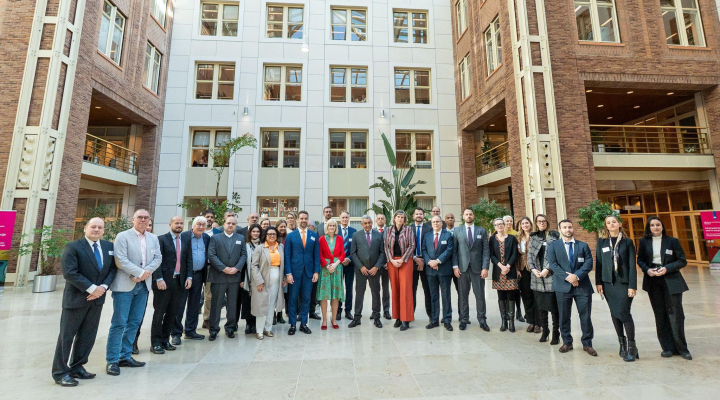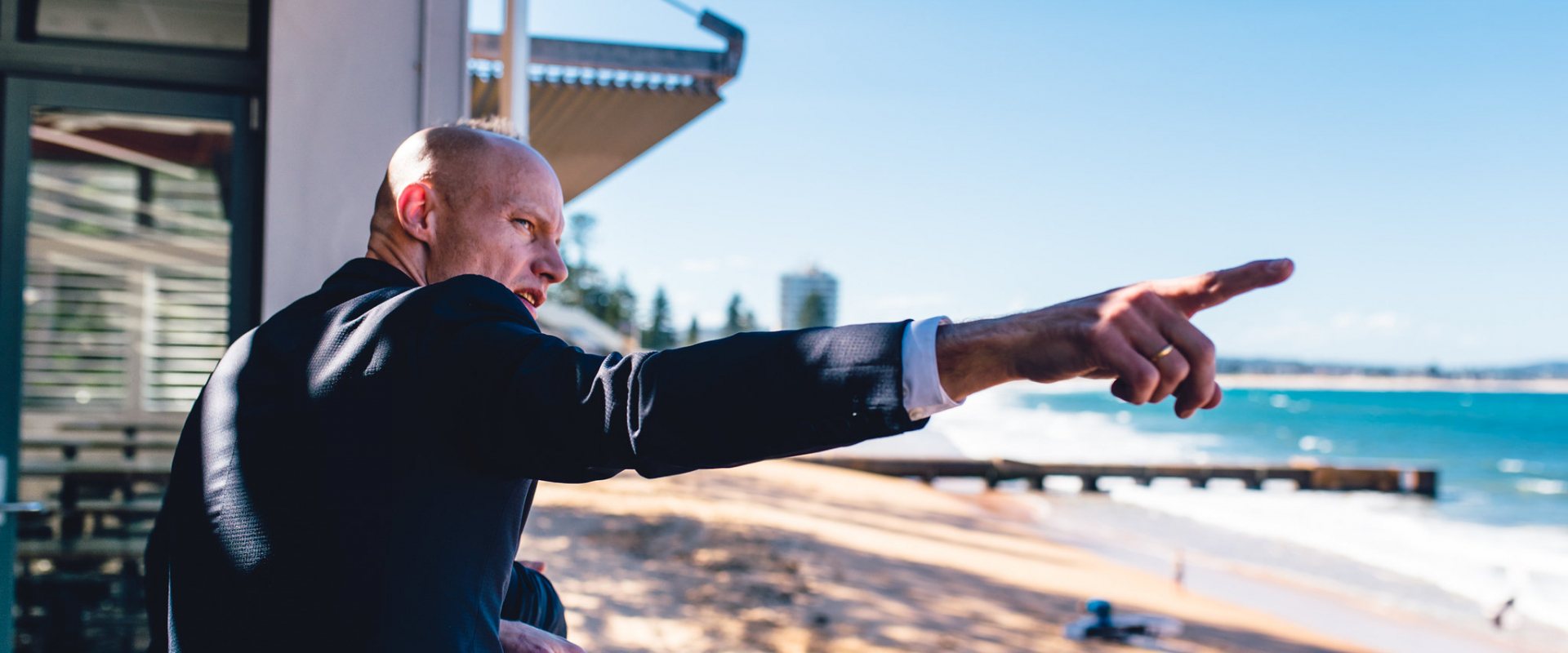
World Water Day 2021: The values of water benefit us all
The theme of this year’s World Water Day is Valuing Water. Who better to comment this theme, than Dutch international water envoy Henk Ovink. He has travelled the world to work with and talk to people from different sectors and different cultures, to learn more about the multiple values of water and to help spur action.
Written by Jac van Tuijn, editor of www.dutchwatersector.com
Multiple values
In this interview Henk Ovink shares his views on the importance of recognising the multiple values of water. In 2018, Ovink was part of the High-Level Panel of Water (HLPW) which recommended that we all understand, value and manage water value better. The HLPW defined 5 principles to value water better and triggered the Valuing Water Initiative, launched by Dutch Prime Minister Mark Rutte during the World Economic Forum in 2019. The principles start with the need to recognise and embrace water’s multiple values (social, economic and cultural) to different groups and interests in all decisions affecting water.
On the occasion of this year’s World Water Day, Ovink challenges everybody, both inside and outside of the water sector, to look at the values of water across supply chains and sectors for a water-secure future for everyone.
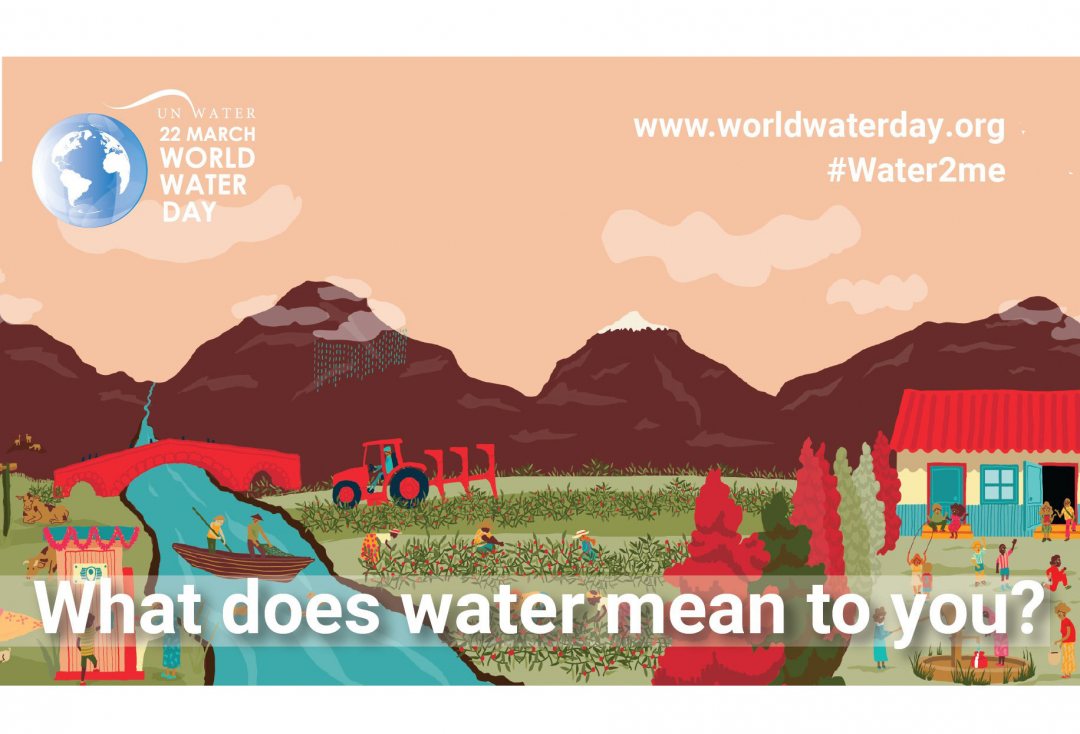

What makes this year’s theme so special?
Ovink: “It puts the multiple values of water in the spotlight. Not just in the narrow financial-economic sense, but across the value chain for many other sectors, such as for food production, healthcare, energy supply and manufacturing. And across all aspects of sustainable development and climate action. We have many good examples that show if you start to consider the multiple values of water, it sparks a process of collaboration and integration. People from outside the water sector are starting to recognize these values and enthusiastically engage in interdisciplinary projects and programmes.
The theme also relates to the pandemic. Authorities have been urging people to wash their hands as the first line of defence against Covid-19. That is easier said than done. Billions of people still lack access to clean water. The realisation of SDG6 therefore continuous to be a priority. There is now a growing recognition that investment in water infrastructure can not only help us control the pandemic but can also reduce healthcare costs in general and helps build societal resilience.”
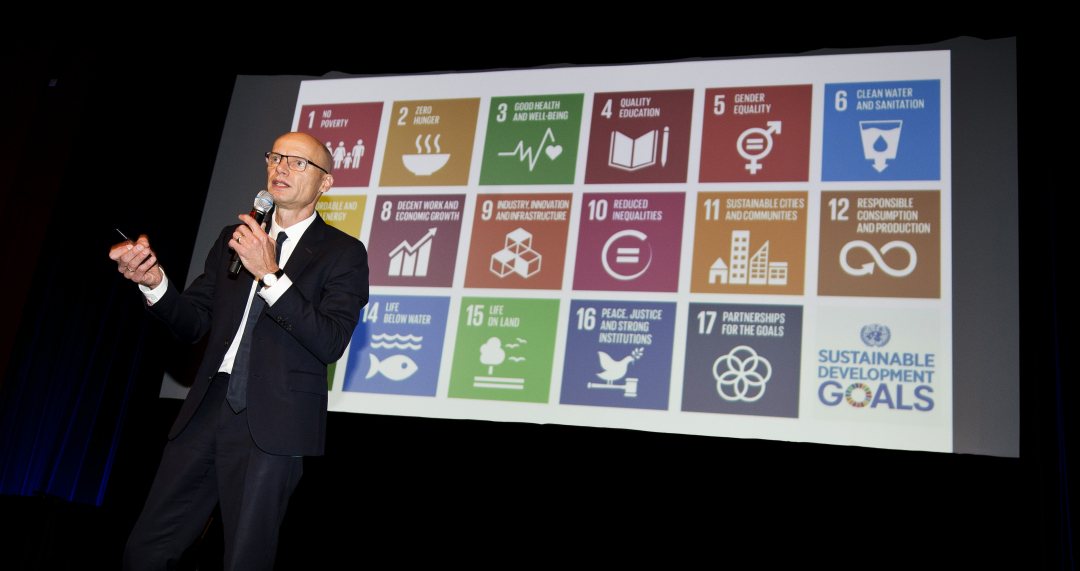

How come water has so many values?
Ovink: “Sustainable water systems have many dependencies: they rely on good water quality and lasting availability of fresh water resources. The pressure on the environment is huge everywhere and it is hard work for the water sector alone to manage a good functioning water system. Take Chile - it has relatively “short” rivers that flow from the Andes to the ocean. Over a short distance you have all the classic water problems: too much water with floods impacting the most vulnerable hardest and hampering economic assets, too little water by over-abstraction and climate induced longer droughts and too polluted water by all users, small and big. Upstream in the mountains the mining industry uses the clean water closest to the source. It is important that they reuse and clean the water as best as possible so there is enough clean water left for the downstream users. These include farmers and industrial water users as well as the villages and cities, all the way down to the ports and the coastal zones. A river basin clearly shows all these dependencies on water as a natural resource. And emphasizes the need of inclusive and comprehensive ways to value water across all needs of society and all aspects of sustainable development.”
What can one do to make it work?
Ovink: “We all know that good quality drinking water is necessary for our health. It can help to mitigate the health risks and save money in the long run. However, the health care sector and the water world keep their budgets entirely separate - they hardly speak to each other. When you think in terms of a value chain, it becomes immediately clear what the benefits are if you intensify these types of relationships. The water sector cannot achieve SDG6 on water on its own. It also depends on more efficient water use by others.
Because of droughts and floods, people tend to see water as the enemy. Valuing water shows that water can also be a friend working to benefit everyone. Even better, valuing water better makes it an enabler, a leverage for the development and change we seek. It starts with organizing roundtables where everybody has an equal position and right to speak. This is what the second principal is about: conduct all processes to reconcile values in ways that are equitable, transparent and inclusive.
This is not an easy process though - influential people initially join the table with the intention to become more influential. At the same time, vulnerable people join discussions with very little trust in the process. These barriers can be overcome by thinking of water in terms of a value chain for the benefit of everyone. I am convinced that the process of valuing water can help us achieve the Sustainable Development Goals as a whole whether we are looking at poverty, education, disaster risk management, issues around equity or climate mitigation and adaptation.”
Does it help to monetize the soft values of water?
Ovink: ”Yes and no, it is far more complex. Financial values are only about dollars, but this is about all societal values. That is more than just money. Do not get me wrong, money is important. Take non-revenue water caused by leaking pipes. Stupid spilling of water, also of money. When we launched the five principals on Valuing Water, we ended the discussion on monetizing water values. The Sustainable Development Goals show us the wide ranges of issues which must be addressed to achieve a prosperous future. Economic development is an integrated part of this agenda, but not as a stand-alone. There is no such thing as cherry picking in the 17 SGDs.“
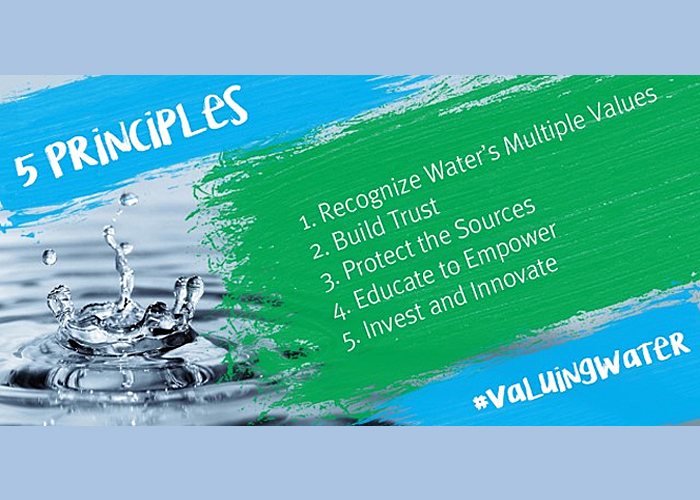

What does water mean to you? Tell us!
Ovink: “I really like this year´s campaign by UN Water and the Valuing Water Initiative. It challenges everybody to share their personal views. What does water mean to you? How do you #valuewater? It holds up a mirror to us all. To the multinational food and beverage producer, to the sugar cane farmer and to the child in Ethiopia. Don’t look at the nearby water experts or the water managers, but tell us on World Water Day your own experiences.
For me it reminds me of those water bottles that we managed to get to a remote village in Pakistan that was cut off from the rest of the world because of the floods. I can also share the story on my work with the Palestinian Water Authority in Gaza and their huge efforts to keep the water services running. All the partners along the Elqui River basin in Chile as discussed. As well as the many inspiring people I work with in the Valuing Water Initiative and the Water as leverage programme in the Asian cities of Semarang, Khulna and Chennai.”
What is your message for today?
Ovink: “I see huge steps being made but I also see many challenges ahead. The biggest is the need to create a pipeline of “blue” projects and programmes, scaling up the best initiatives that accelerate the realisation of the Sustainable Development Goals. There is no ‘silver bullet’ to get us to these 17 goals, it continues to be hard work. For today, I have three main messages.
The first is to the professionals in the water sector: scale up and accelerate your already amazing work, but also connect with others outside of the water sector. Look for partners, the non-usual suspects. Break new ground. This will not be easy.
My second message goes to professionals outside of the water sector. I want to challenge you to truly embrace water as an opportunity and reach out to the water sector to work together. I can assure you, it holds many opportunities to improve your situation. Whether you work in education, food supply, energy supply, nature conservation. Whether you are a researcher, a policy maker or an investor. Go and join the water professionals. Sit around the table together and discover the multiple values of water. See water as your friend. Not your enemy. See water as an opportunity, the leverage for the change you seek.
My third message goes to everybody. Don’t let reports on the poor state of the world overwhelm you. The complexity of the challenge is our opportunity, we can connect the dots, working on water. There are so many good examples of innovative and catalytic sustainability projects. We have to bring them to scale. To make them common practise. Valuing water across society at scale, we can do this together.”
More on World Water Day 2021
More on Valuing Water Initiative




